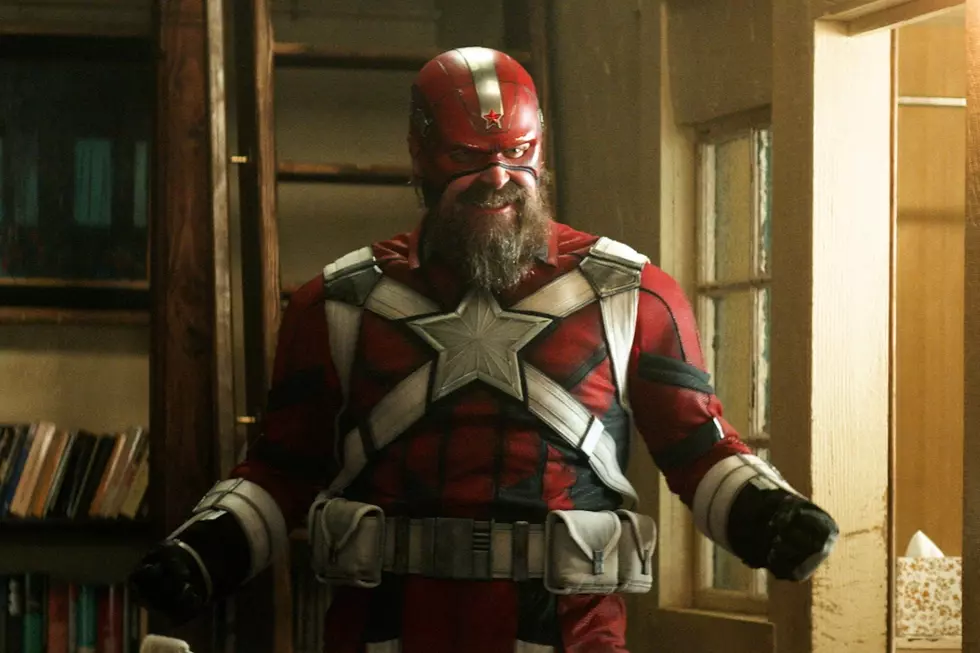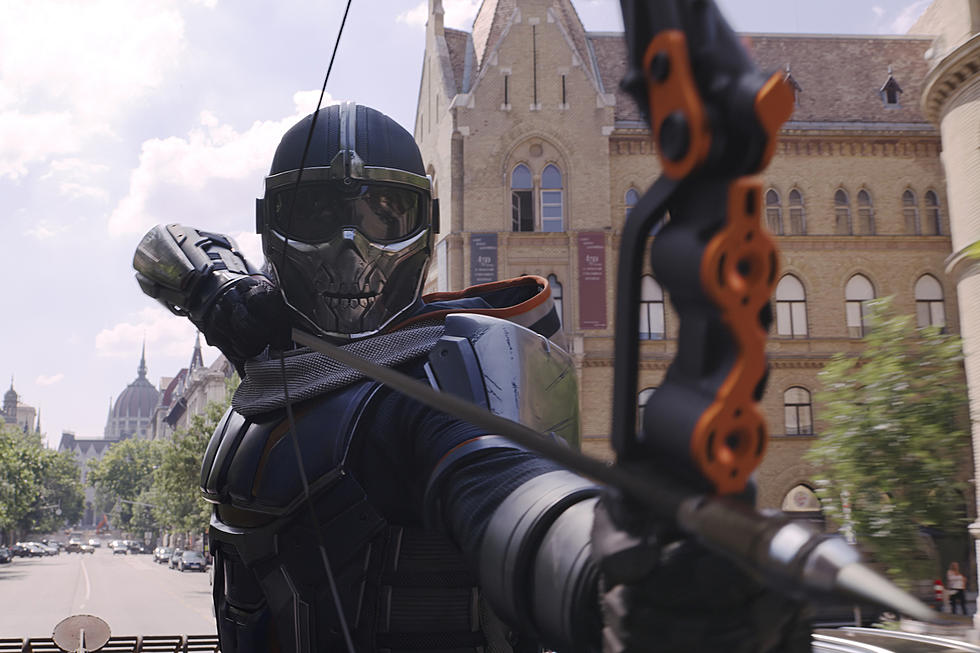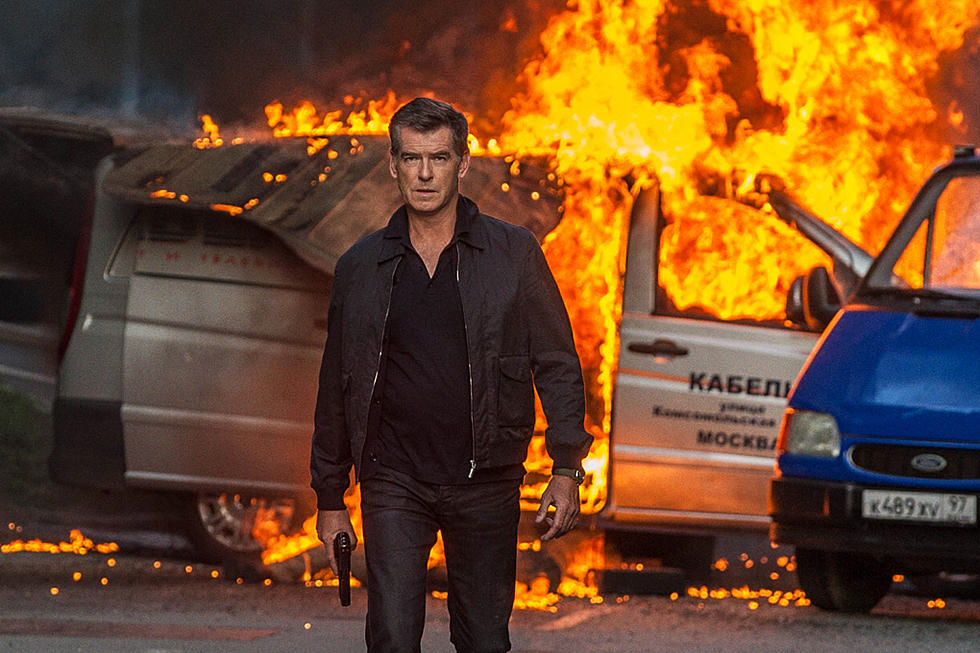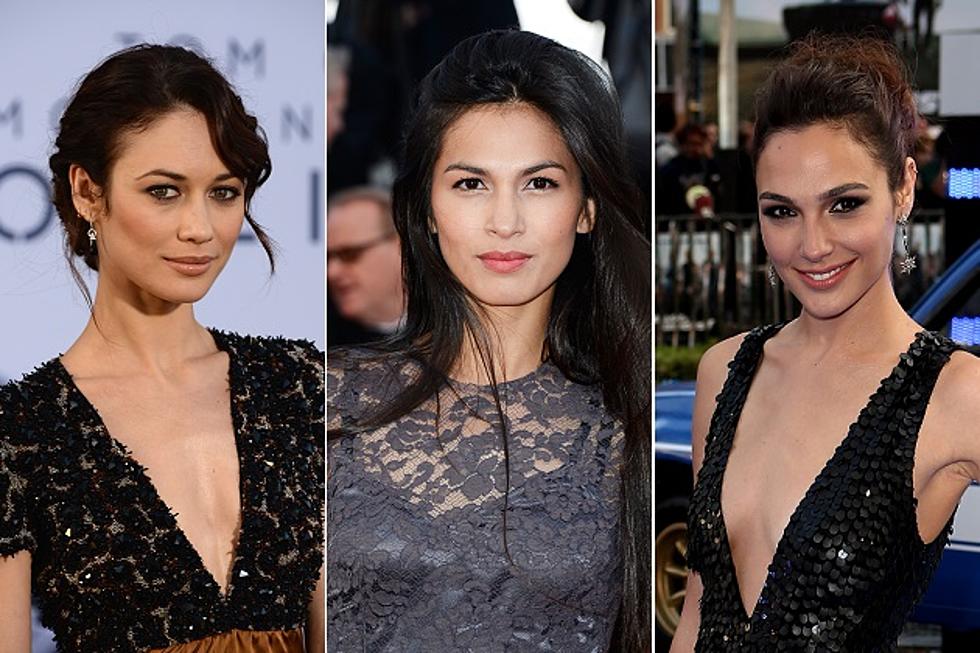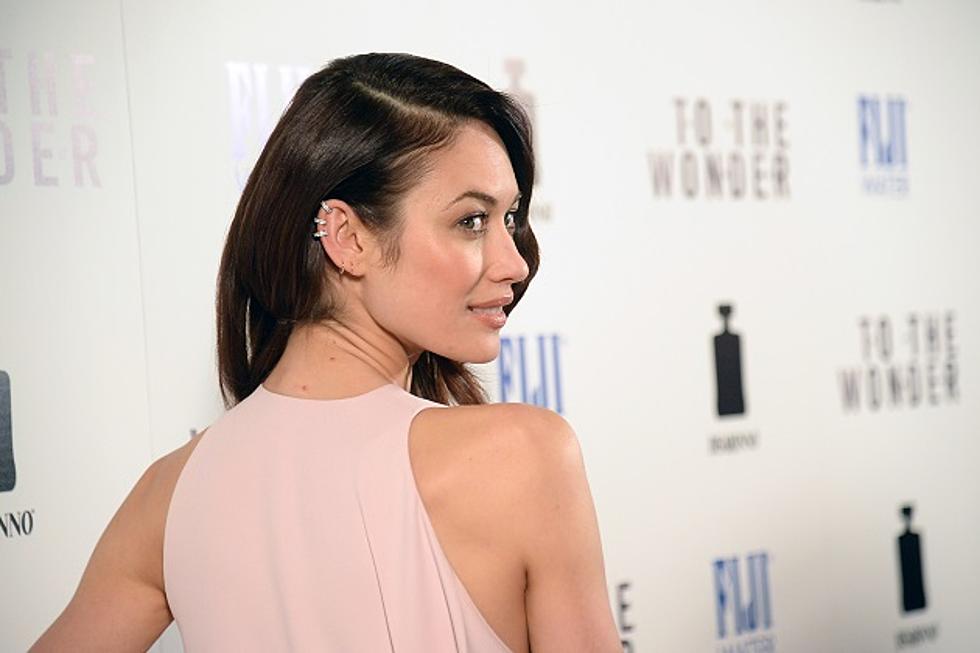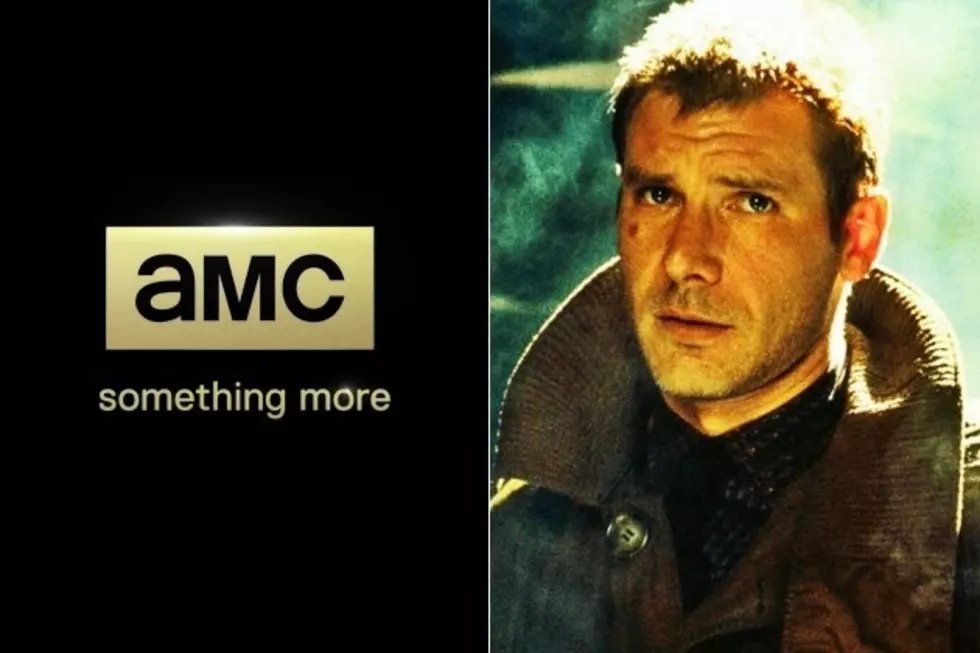
Olga Kurylenko Interview: Talking With the ‘Oblivion’ Dream Girl
Olga Kurylenko is a dream girl. I mean this literally: in 'Oblivion,' her latest film, she plays a mysterious woman who haunts a man’s dreams. And like Tom Cruise’s character, we soon realize that we’re more than a little bit in love with her, thanks to her quiet introspection, a sort of heartrending sincerity, and, sure, the fact that she’s drop-dead gorgeous. But then again, audiences have been getting slowly introduced to her over the past several years in a number of roles where she’s a troubled, unattainable and yet remarkably welcoming young beauty who wins the heart of her male counterparts.
We recently sat down with Kurylenko at the Los Angeles press day for Oblivion, where the actress had just survived a full day of interviews – we were her last. And though she apologized repeatedly, for some perceived fatigue on her part, she was engaged and thoughtful as she spoke about the role of Julia, playing a character introduced to audiences as a romantic ideal. Additionally, she discussed her collaboration with director Joe Kosinski ('TRON: Legacy'), and talked about how her own idealized past – as a former model – proves to be both a blessing and a curse as she continues to win the hearts not only of audiences, but filmmakers eager to work with the best actresses in Hollywood.
When a movie introduces your character as a dream or an ideal, what challenge does that present you to later humanize her?
Well, it was actually interesting, because I kind of loved that I was a dream (laughs). It was kind of like a fairy tale. And also, being someone’s dream is also a metaphor – we use it for people we love. So I really wanted to play this romantic character that I haven’t done many times, and it was just lovely. But was interesting about Julia is that there’s a mystery about her, and we don’t know whether she’s human or not, whether she’s an alien, whether she’s dangerous, and I had to keep all of this and slowly little by little unravel it to make people discover her. She wasn’t just the same person that we see in the opening, in comparison to the very last image of her – she changes, all of the time.
Is there pressure then to live up to that expectation? To make sure that once the audience meets her they say, oh, she’s definitely worth dreaming about?
Well, yeah, to play this ideal, there’s pressure of being idolized like that. But for me, it was about making her human and able to feel and love and experience those feelings and emotions that human beings experience.
When you have a character that has so much mystery about her and has so many sides, what do you start with at her core, since she does make these changes?
Well, there were many things. We realize she was an astronaut, so I watched some videos about how astronauts train, and you realize those guys must be really resilient and tough, because you see big guys passing out in those machines – people can’t stand the pressure of the spinning and all of that. So I thought, wow, that frail girl must be extremely tough -- because look at me (laughs)! So I thought, oh, I’ve got to sell that. So I did go to the gym, which was a requirement, to strengthen myself. But also, mentally, she must be a strong woman. But after hat I had to add the layers, because it’s not about her strength and being an astronaut or whatever, it’s about her being a vulnerable woman who’s looking for the love of her life -- the man she last saw before she closed her eyes. And when she opens them, the first thing she thinks about is him! We realize she missed a big chunk of life, and it’s just about that vulnerability – a woman who had lost everything, not just him, but the world. And she comes to that realization and it hits her like a baseball bat on the head.
It’s something that I think one creates inside – thinking, imagining those things, mixed with movies that we watched to prepare. I watched a lot of romantic movies, old ones, because there was a made them very in a way pure and naïve, like there was no sexual contact and their lips barely touched. It was all so beautifully done, and we still felt and experienced emotions, which means you don’t need to actually see things. And we wanted to reproduce that, romance-wise, in this movie.
When there are so many twists and turns in a story like this, how important is it for you to understand each new development or the overall narrative?
Oh yeah, it’s important. If you don’t understand, you can’t do it. And that’s where Joe helped – it’s his story and he came up with it. So when I read the script, it’s sci-fi, and there were all these words and I had no idea what they meant. I mean, when you read “bubble ship,” “the Tet,” “sky tower,” “drones,” “scavs,” I’m like what the hell are those things? And I asked Joe and he showed me a bunch of images, so once I could imagine things in my head, I could see and understand the story better. And I asked for those images to be printed for me and I stuck them to my walls in my apartment where I lived in Baton Rouge, to immerse myself in this world.
Presumably Joe learned a lot of lessons on TRON: Legacy that he applied to this project. What was he like as a director, in comparison to some of the other filmmakers you’ve worked with?
Maybe I’m going too strong, but I think he’s one of the geniuses out there. He’s new – I mean, it’s his second movie – but I think he’s a new, very big director. He is very talented – he’s amazing. I feel so honored that I had a chance to work with him; I mean, I’ll always remember this. This is one of the best movies I think I’ve done. And he did strike me as someone extremely smart, knowing what he’s doing – someone with an amazing vision. His eye is so sharp; he would see every imperfection, even an imperfection in my dress or our costumes – he was so precise. Every line [aesthetically] had to be perfect. It comes from architecture, I’m sure, because it’s all about the lines and the shapes. And the notes he gives to actors on set are very thoughtful – quite extraordinary. Now, that’s a guy who really understands filmmaking; I mean, I don’t know what he was doing in architecture before! He’s a filmmaker.
Joe also seems to have a lot of respect for complex female roles, both with yours and with Quorra in TRON: Legacy. But how tough is it for you to find roles with that kind of depth in general?
It’s tough. There’s not many of them. It’s very difficult. First of all, we all know there are more interesting parts out there for boys than there are for girls, and then second, well, just in my particular experience, it’s been hard. Because if you look, I’m just starting – I’m just coming to this middle where I’m passing my start point, I haven’t really been around long if you look at years. And so it’s hard to actually land these important roles playing interesting people when you haven’t had that much experience; people don’t want to take risks, so for me it’s constantly having to prove myself. It’s all about people being afraid to take risks, basically, so I go through tests, I do auditions, and I persevere. I constantly have to prove that I’m the character, and when I succeed I get the part. So it’s work for me, and it’s been like that. And of course at some point you get to a certain stage of your career where for certain things, you have offers. And I have had offers, but it depends for which parts. And then I guess naturally one auditions less and less, but so far I’m just working and trying to get further and past what I have been able to do and go to different levels.
Is there a greater stigma from your background in modeling, or just the perception of your work – proving that you can take on a substantive character?
That too. Having been a model doesn’t help. In a way, I wish I wasn’t – because it’s really not about acting. The prejudice comes with it no matter what, and it’s already there; it puts people in a certain position. But in another way, I can’t say I wish I hadn’t done it. I’m so grateful for that job. It put me on my feet. I’ve been able to support myself. I don’t depend on anybody today, and I never did. And that’s what I wanted – that was my goal. I supported my family. So in a way, it’s that job that gave it to me, because I started acting once I was already stable – it was a great job in that sense. But prejudice-wise, I wish I had done it but no one knew about it.
And by the way, when I was a model, people didn’t know me! I wasn’t like this top model; I was quietly doing my work, and when I became an actress people started doing research and everybody found out. People dug out photos and suddenly people became interested – but no one was interested in my photos when I was a model. I mean, I was just one of those faces. There were tons of models, and I was just a face. And then there was a name to the face, but it doesn’t help. They’re completely different things – modeling doesn’t help acting, they have nothing to do with each other. Actually not at all – if anything, it can spoil someone. But I was never in that state, anyway, because I always wanted to act. So I was never a model-y model. I was doing it as a job, but people didn’t even know I was a model. So yeah, I have to get out of it; I have to break that ice. But it’s been a good fight; it’s worth it. I mean, maybe in a way that’s what makes me excited for this – if it was easy, I wouldn’t have achieved anything. I believe that when things are easy, people stay dormant. And they need challenges – so maybe I should thank it.
More From ScreenCrush
